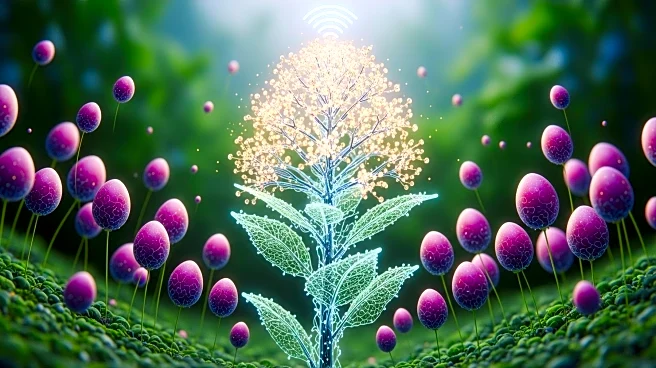What's Happening?
Researchers have engineered a new carbon fixation pathway in the plant Arabidopsis thaliana, significantly increasing its carbon uptake and seed production. The new pathway, known as the malyl-CoA-glycerate (McG) cycle, works alongside the traditional Calvin-Benson-Bassham cycle to enhance carbon efficiency. This innovation has resulted in plants with increased biomass, leaf and seed numbers, and higher lipid content. The study, published in Science, demonstrates the potential for engineered plants to contribute to carbon sequestration and improve crop yields.
Why It's Important?
The development of plants with enhanced carbon uptake capabilities has significant implications for agriculture and climate change mitigation. By increasing biomass and seed production, these engineered plants could lead to higher crop yields and more efficient biofuel production. Additionally, their ability to sequester more carbon could help reduce atmospheric CO2 levels, contributing to efforts to combat climate change. However, the long-term ecological impacts and stability of these modifications remain uncertain, necessitating further research.
What's Next?
Further studies are needed to assess the long-term viability and ecological impact of the McG cycle in crop plants. Researchers will likely explore the potential for applying this technology to other plant species and evaluate its effectiveness in different environmental conditions. The findings could influence agricultural practices and policies aimed at enhancing food security and reducing carbon emissions.








